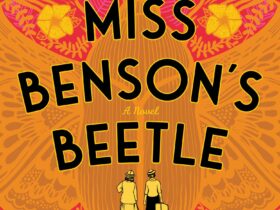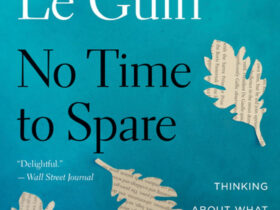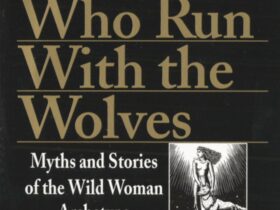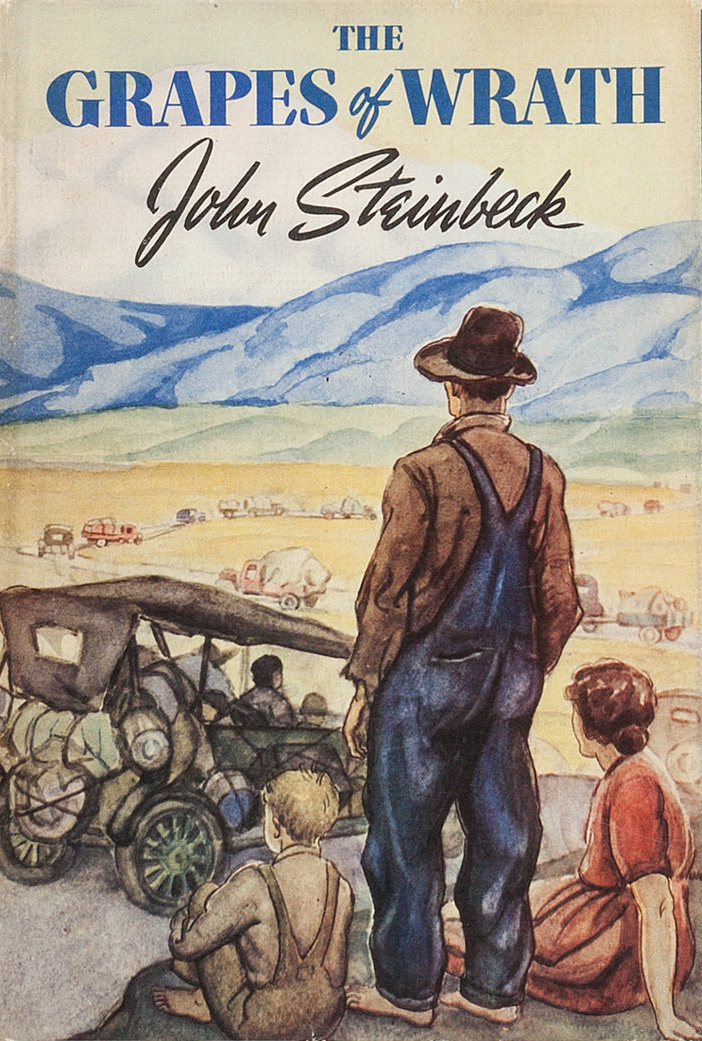Steinbeck’s rhythm of exposition and story is beautiful and effective at placing the reader on the road of migrant life through U.S. history. Ursula LeGuin, in one of her essays from the book No Time to Spare, accepts The Grapes of Wrath as “the great American novel.” LeGuin’s essay suggests that “American” and “great” are strictly male, but the land and the Joads and the vignettes that the novel captures surprised me. There is childbirth, mothering, loss, and meal prep, and so much that is beyond the masculine tropes and scopes of historical novels that I, like LeGuin, couldn’t help but love this great American novel.
“Grapes of wrath are heavy.” This novel demonstrates the horror of turning human need into currency; the dehumanization of people when capitalists burn the grapes because the grapes will not turn a profit. Food becomes money and life becomes expendable. While children starve to death in homeless, migrant camps, people count money and burn crops. Steinbeck’s novel humanizes the Oakies, the migrants, the felons, and the heretics by telling their stories.
This book reminds me to appreciate my life and home and family in this place where I am allowed to be human. This is my favorite of Steinbeck’s novels, it has a tenderness that his other novels lack.




























Leave a Reply